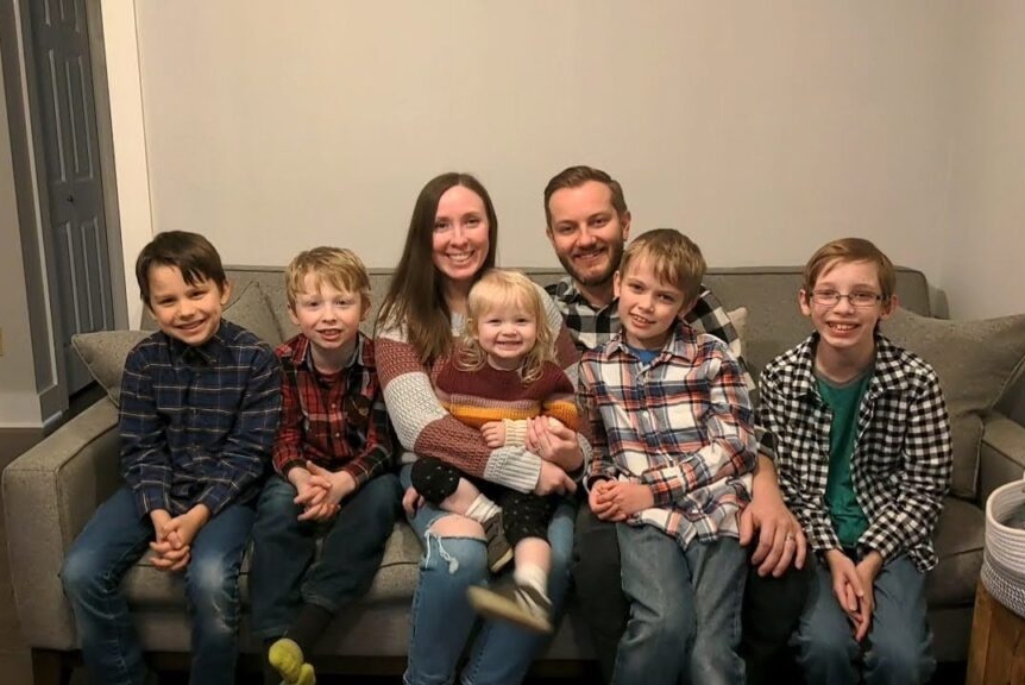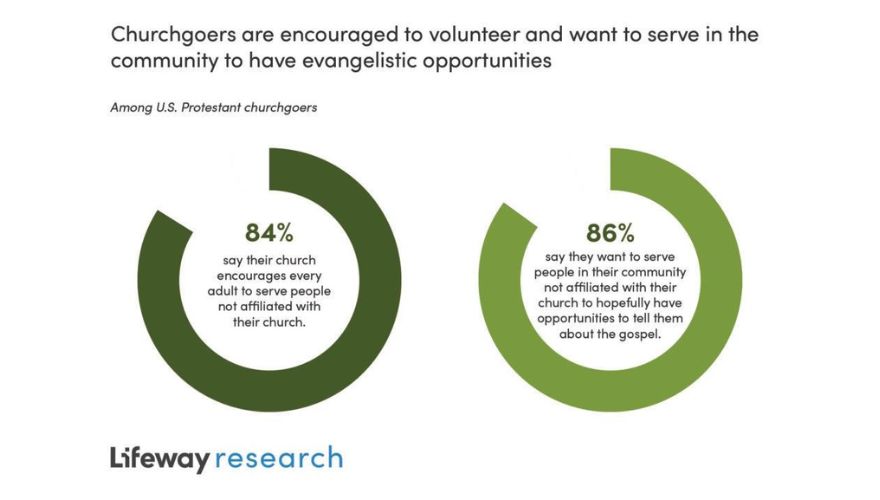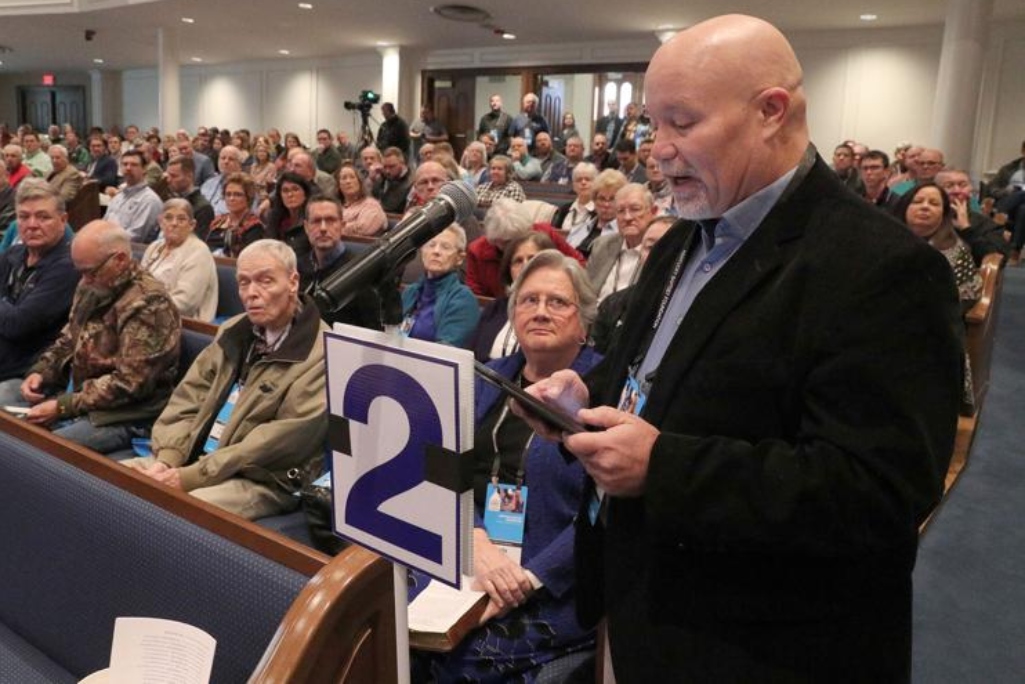
Brian and Katy Wuoti pose with their five children, two of whom joined the family through foster care and adoption. Brian is the pastor of Valley Town Church in Wilmington, Vt.
WILMINGTON, Vt. (BP) — Two decades of being a public high school teacher have tuned Brian Wuoti’s awareness over how to engage teenagers. He is currently the math department chair at his local high school and has been an advisor for individual students as well as clubs.
A decade as the pastor of Valley Town Church has reinforced his desire to see the gospel change lives. It started with his own through salvation long before, but ministry led him and his wife, Katy, to see the needs of children in the area as opioid addiction ravaged families.
It brought them to serve as foster parents in a state that, among others, sorely needed their help. Now with five children — two of them adopted through the foster care system — the Wuotis would like to continue serving in the foster care system.
Unfortunately, acknowledging their Christian faith and how it shapes their beliefs about gender led the state to revoke their license.
The Wuotis have since joined another couple in a federal lawsuit filed by Alliance Defending Freedom (ADF) seeking to protect their first amendment rights and return to eligibility to serve as foster parents.
The case is “new ground,” said ADF legal counsel Mallory Sleight, though two similar cases are also currently engaged. One in Washington involves a couple who was barred from serving as respite care. The other, in Oregon, involves a single mother who is being denied the opportunity to be a foster parent.
Regulation changes
ADF filed the Vermont case on behalf of the Wuotis and Bryan and Rebecca Gantt. Brian Wuoti is pastor of Valley Town Church in Wilmington, a Southern Baptist congregation, while Bryan Gantt is pastor of the non-denominational Agape Christian Fellowship in Battleboro.
The Wuotis and Gantts both had their foster care licenses revoked by the state when they expressed they could not compromise on their Christian beliefs, in this case, related to sexuality. The confrontation came about due to the February 2020 enactment of a state policy that addressed instructing foster families how to support a child’s sexual orientation, gender identity and gender expression (SOGI).
A section called “Practice Guidance” gives pointers for case workers on engaging foster families with “unsupportive and rejecting behaviors” toward an LGBTQ child or youth. Those bullet points include:
- Talking with young people about their gender and sexual identities.
- Expressing support and affection when children tell them about their identity.
- Supporting children’s identities even if it feels uncomfortable.
- Bringing young people to LGBTQ organizations and events.
Beginning in 2014, the Wuotis served as foster parents and through that ended up adopting in August 2015 and again in April 2019.
That same year, said the filing, new regulations that took effect in 2023 included requirements that foster parents “support children in wearing hairstyles, clothing, and accessories affirming the child’s racial, cultural, tribal, religious, or gender identity.” This was to meet the “needs of each foster child” for all parents.
A September 2023 email to all foster families further expressed that “eligibility for licensure is dependent on foster parents and applicants being able to support youth who identify as lesbian, gay, bisexual, transgender, questioning, or another diverse identify, even if the foster parents hold divergent personal opinions or beliefs.”
A need persists
Brian Wuoti has taught and mentored many students of different sexual orientation and gender identities. Katy Wuoti struggled with gender dysphoria as a child, “which fills her with compassion for children going through the same thing,” said the filing. She expressed how she was thankful her family did not treat her like the opposite sex, as she soon “grew out of that discomfort.”
Their license was recommended to be revoked in April 2022.
The Gantts had been reissued a license that same year, with no concerns raised about their ability to foster or adopt. Months after their third adoption, they were contacted in September 2023 about the prospect of fostering a baby boy.
Having just received the email to all foster families on eligibility for licensure, they informed their resource coordinator they would love and support any LGBTQ child. However, they could not compromise their biblical beliefs through ways such as using different pronouns or taking a child to a Pride parade.
Their license was revoked in February.
In 2023 there were 985 Vermont children in custody for foster care, with 834 licensed homes available.
Last December, a nonpartisan organization within the state government that advocates for issues related to vulnerable youth called for all hands on deck to meet growing foster care needs.
A desire to keep helping children
On July 1 this year, ADF filed a preliminary injunction asking the court to allow the Vermont plaintiffs to pursue their license renewals while the case plays out in court, Sleight told Baptist Press (BP).
Over the past decade, the Wuotis enjoyed a long-term, healthy relationship with the Department for Children and Families. The 2022 process to renew their license included one case worker calling them “AMAZING” and that she “probably could not pick a more wonderful foster family.”
“They’re familiar with us. They know we care for and love our children,” said Brian. “Every other part of our relicensing had been completed and [SOGI] was the only issue that led them to revoke our license.”
Their church, of course, has been supportive. He and Katy have explained the situation to each of their children in age-appropriate ways and made it a part of family prayer time. Their 12-year-old son has expressed wanting to be an attorney one day for others in a similar situation.
“He wants to help protect religious liberty,” said Brian. “He recognizes the injustice here.”
(EDITOR’S NOTE — Scott Barkley is chief national correspondent for Baptist Press.)


